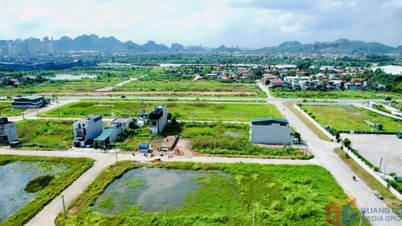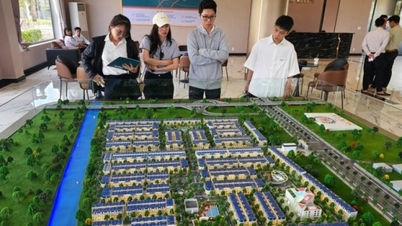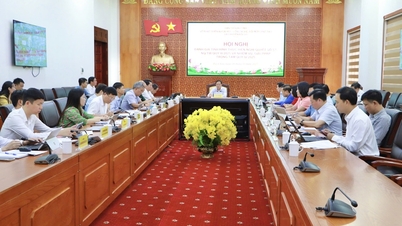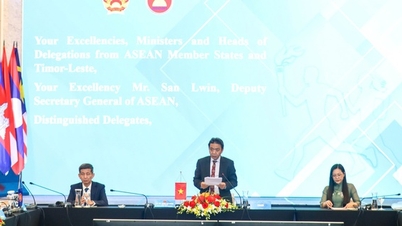According to the Ministry of Finance , the “too high” family deduction level will return the personal income tax (PIT) policy to “a tax policy for high-income earners”. The Ministry also proposed to add deductions for charitable and humanitarian contributions.
Proposal to assign the Government to regulate family deduction levels
The Ministry of Finance has just submitted to the Government a proposal to develop a draft Law on Personal Income Tax (replacement).
It clearly states that recently there have been opinions that the level family deduction still low, but there are also opinions that the current family deduction level is not low when compared with the general level of living standards and income of the people, many workers have income that is not yet at the level to pay tax.
Some opinions say that it is necessary to regulate the family deduction level according to the regional minimum wage level, the family deduction level in urban areas and large cities needs to be higher than in rural and mountainous areas due to higher costs; there are also opinions that there must be a higher tax policy for individuals in urban areas and large cities to limit immigration and migration to large cities...

According to the Ministry of Finance, the current family deduction level has been applied since 2020 and needs to be reviewed and re-evaluated to propose amendments and supplements suitable to new conditions.
The specific family deduction level needs to be carefully researched and calculated to ensure it is consistent with price fluctuations as well as the increase in people's living standards in the recent period as well as forecasts for the coming time.
“ The “too high” deduction level will obscure the role of the personal income tax policy in implementing the functions of this tax (ensuring social equity and income regulation) and will invisibly bring the personal income tax policy back to the “tax policy for high-income earners” as in the previous period. It is possible to consider studying the option of assigning the Government to regulate the family deduction level to ensure flexibility and proactive adjustment to suit the reality and requirements of the country’s socio -economic development in each period ,” the Ministry of Finance proposed.
Add special deductions to support taxpayers
In order to contribute to reducing the tax burden for taxpayers, The Ministry of Finance proposes to add additional contributions Charitable and humanitarian contributions are deductible.
Article 20 of the current Personal Income Tax Law stipulates that charitable and humanitarian contributions are deducted from income before calculating tax on income from salaries and wages, including: contributions to organizations and facilities caring for and nurturing children in especially difficult circumstances, the disabled, and the elderly without support; contributions to charity funds, humanitarian funds, and education promotion funds.
“ Currently, the formation and expansion of social funds and charity funds is a solution to help the Government support welfare for vulnerable groups, in which the funds are formed from the mobilization and contributions of people and workers in agencies, organizations and units that have contributed to the good implementation of gratitude, social security policies, and support for people in especially difficult circumstances or during the Covid-19 pandemic, storms and floods in the past time. Therefore, it is necessary to review and supplement the scope of determining deductible contributions ,” the Ministry of Finance analyzed.
In addition, the Ministry of Finance also proposed to study and add other specific deductions.
Through research on the experience of other countries, it is shown that most of the personal income tax laws of countries have provisions on deductions in different forms and ways. In terms of classification, countries often divide into the following three groups: general deductions for individual taxpayers; deductions for dependents, such as deductions for children, spouses, parents, etc.; deductions of a specific nature (for example, deductions for medical expenses, education, etc.).
Specific deductions are deductions that taxpayers are entitled to when meeting certain criteria, such as spending on items encouraged by the State (e.g., for health care, education, etc.). Accordingly, the scope of these deductions in different countries is also very diverse. Some countries allow deductions for social insurance and health insurance contributions, etc. to encourage people to participate in these services; some countries allow deductions for medical expenses, children's education expenses, or some countries allow deductions for interest on installment home loans, etc. (Thailand, Malaysia, Korea, Indonesia, etc.).
The Ministry of Finance emphasized that it is necessary to review and study additional specific deductions before calculating taxes for individual taxpayers. However, the scope of deductible expenses and the level of deductions need to be considered and calculated appropriately to achieve the set goals but also not reduce the role of personal income tax policy as a tool to regulate income and implement redistribution.
According to the current Personal Income Tax Law, individuals are entitled to deduct social insurance, health insurance, unemployment insurance, professional liability insurance for certain occupations that require compulsory insurance, minus family deductions, charitable and humanitarian contributions, allowances and subsidies as prescribed... the remaining amount is the income used as the basis for calculating personal income tax. From the 2020 tax period, the deduction for taxpayers is 11 million VND/month (132 million VND/year); the deduction for each dependent is 4.4 million VND/month. With this deduction, people with income from salaries and wages at 17 million VND/month (if there is 1 dependent) or 22 million VND/month (if there are 2 dependents) after deducting social insurance, health insurance, unemployment insurance... will not have to pay personal income tax. |
Source



![[Photo] General Secretary To Lam attends the 18th Hanoi Party Congress, term 2025-2030](https://vphoto.vietnam.vn/thumb/1200x675/vietnam/resource/IMAGE/2025/10/16/1760581023342_cover-0367-jpg.webp)
![[Photo] Nhan Dan Newspaper launches “Fatherland in the Heart: The Concert Film”](https://vphoto.vietnam.vn/thumb/1200x675/vietnam/resource/IMAGE/2025/10/16/1760622132545_thiet-ke-chua-co-ten-36-png.webp)






































![[Video] TripAdvisor honors many famous attractions of Ninh Binh](https://vphoto.vietnam.vn/thumb/402x226/vietnam/resource/IMAGE/2025/10/16/1760574721908_vinh-danh-ninh-binh-7368-jpg.webp)



























![[Photo] Nhan Dan Newspaper launches “Fatherland in the Heart: The Concert Film”](https://vphoto.vietnam.vn/thumb/402x226/vietnam/resource/IMAGE/2025/10/16/1760622132545_thiet-ke-chua-co-ten-36-png.webp)






































Comment (0)